Greetings, grace & gratitude
Greetings, grace & gratitude
A team of UC students, faculty and staff travel to East Africa for lessons that last a lifetime
The trip from Cincinnati to Paris to Nairobi and finally to four remote communities in northern Tanzania had been an exhausting trek for Marcus Elliott.
The second-year University of Cincinnati student had never been on a plane but managed 16 hours of airtime, followed by a 10-hour arduous van ride whose final haul included a slog of dirt roads over rocky terrain that touched Africa’s Great Rift Valley and ended on the scenic shores of Lake Victoria.

Marcus Elliott awaits a flight in the airport. Photo/Sean Hughes/UC Marketing + Brand
It was an eventful start to a two-week service-learning trip for Elliott and a dozen other UC students as part of a cultural awareness and fact-finding mission. The trip across Tanzania — Shirati, Nyambogo, Burere and Roche villages — was organized by Village Life Outreach Project, a nonprofit dedicated to fighting poverty, improving education and making healthcare and clean water more accessible in northern Tanzania.
Elliott was nervous about flying for the first time, but one would never know it once he hit his final destinations. In Burere, he was high-fiving schoolchildren, who between classes flocked to greet visitors and offer warm welcomes.
In Nyambogo, Elliott learned that while the dominant languages are the native tongue of the Luo people along with Swahili, some children do speak decent English.
It was there that he met Barack Obama.

Marcus Elliott high-fives children in Tanzania. Photo/Sean Hughes/UC Marketing + Brand
He thought the child’s introduction was a joke, but it’s a common name for children who are part of the Luo of Kenya and Tanzania. The former U.S. president is also of Luo ancestry and is revered there.
The Luo are a major ethnic group in East Africa native to western Kenya and the Mara region of northern Tanzania and numbering about 4 million people. Their culture, customs and language were an important part of Elliott’s experience.
“People here are extremely kind and very outgoing,” explains Elliott, after his visit to Nyambogo. “They are very warm, they're very welcoming, and the kids are so sweet. They're sweet as can be. They're just the purest little souls.”
“I think the biggest surprise is how dedicated the teachers are to creating a positive learning environment for the children,” says Elliott. “You can tell that they really want the best for the children and they really want the children to learn and have a better life. They're very passionate about their teaching.”
Elliott was one of nine Marian Spencer Scholars who were joined on the trip by four NEXT Innovation Scholars, and two UC students part of Engineers Without Borders along with a team of faculty, staff, alumni, administrators and supporters.
Roche, Nyambogo and Burere are the epicenter of nearly two decades of important community service partnerships formed with everyday Tanzanians; Village Life Outreach Project, which is based in the 1819 Innovation Hub of the University of Cincinnati; and the Shirati Health, Education and Development Foundation (SHED), a nongovernmental organization in Shirati.

Dr. Chris Lewis greets community members in Roche. Photo/Sean Hughes/UC Marketing + Brand
More than 800 Bearcats — that’s students, faculty, staff and alumni from UC, UC Health and Cincinnati Children’s — have worked to advance a three-pronged mission driven by Village Life: ensuring the availability of clean water, improving education and providing access to healthcare.
Village Life was founded in 2003 by Chris Lewis, MD, a UC family and community medicine professor, and vice provost of academic affairs. Lewis tasked the students with gathering information about education, healthcare, clean water and other topics to assist Village Life with its on-going needs assessments to help shape future projects that could benefit these areas of rural Tanzania.
“We partner with our communities here in Tanzania to provide service, resources, technical know-how, but equally as important as the service we're providing is the lessons that we learn from them,” says Lewis. “Despite the lack of material wealth, I would argue that they are some of the wealthiest people on the planet, and they have something to give us.”
"It feels like home"
The sign reading “Karibu Tanzania,” or “Welcome to Tanzania,” was a treasured sight for UC student Timoth Akama.
After crossing the Kenyan border into Tanzania, Shirati, Akama’s hometown, was finally within reach. It is among the northernmost towns at the border with Kenya. As dusk fell, makeshift shops continued selling items, while residents were outside enjoying downtime with their neighbors in front yards that hugged an arduous dusty road into town.
“Ah, it feels like home,” said Akama as the van neared its final destination.
UC students, staff and faculty would stay in a complex run by the local foundation SHED in Shirati for much of their trip, and Akama would get a chance to tell his colleagues about Tanzanian culture.
Akama is one of two students from Tanzania who are attending UC as Global Opportunity Scholars, along with Zedekia Samara. Both started their first year at UC online in the fall of 2020 in the midst of the COVID-19 pandemic before coming to Cincinnati the following year.
While in Tanzania, Akama was a nurse midwife at Village Life’s Roche Health Center and Samara worked as an interpreter for the organization.
“Tanzania and Kenya, our culture is kind of the same,” says Akama. “We speak the same languages, listen to similar music.”
Tanzania is the union of two countries: Tanganyika and Zanzibar. Tanganyika got its independence in 1961 and then Zanzibar got independence in 1963. There was a union of the two in 1964. There are more than 120 ethnic groups in Tanzania.
“Each tribe has its own unique language and culture. Their way of acting and seeing things,” explains Akama.
Swahili is a unifying language for residents in Tanzania and Kenya, but it’s not unusual for residents to speak multiple languages, which would include the mother tongue of an individual’s tribal group. There are more than 120 languages in Tanzania and at least 70 in Kenya. English is more widely heard in urban areas, but a surprising number of schoolchildren in the Tanzanian communities spoke at least some English.
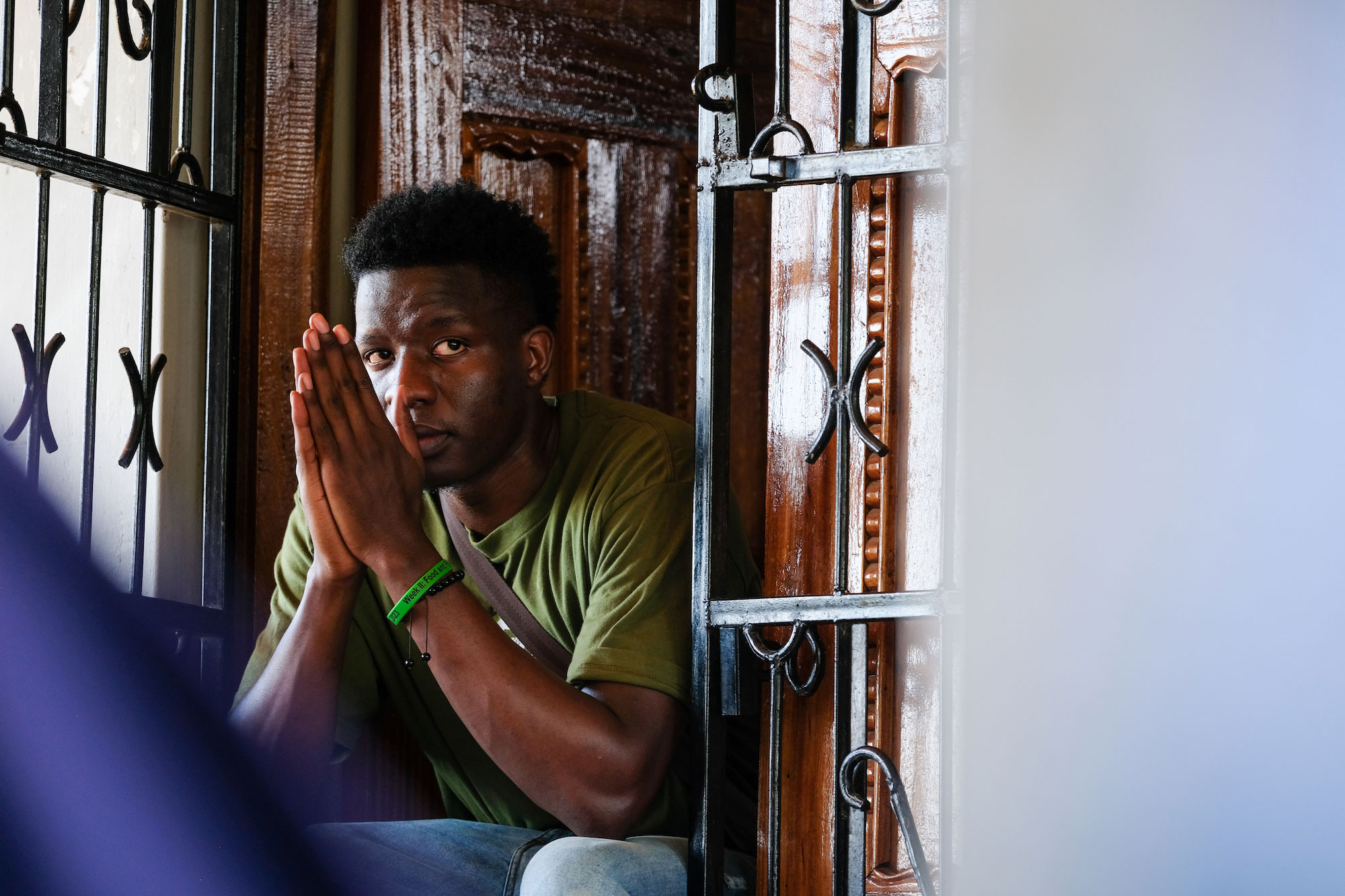
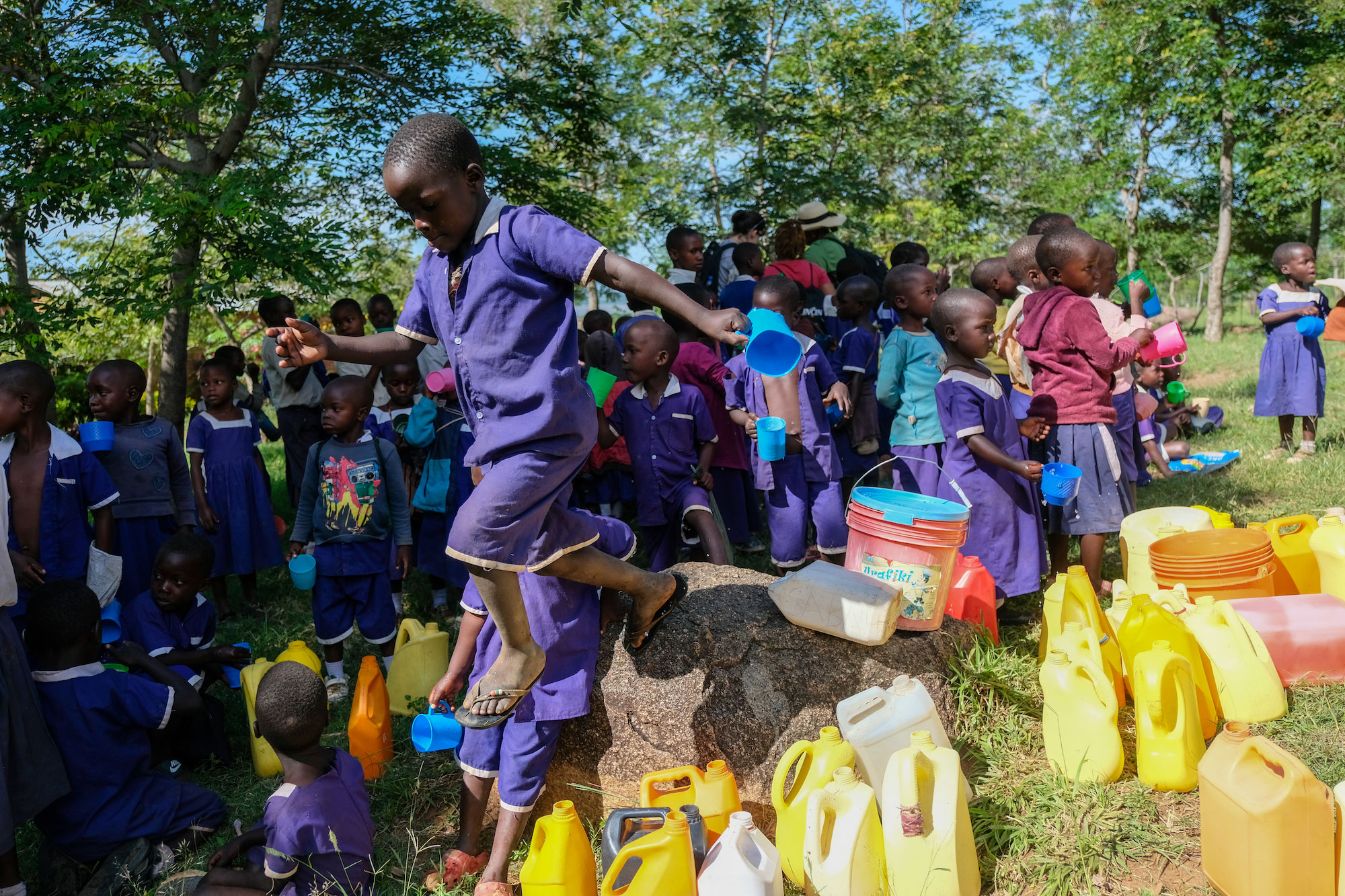
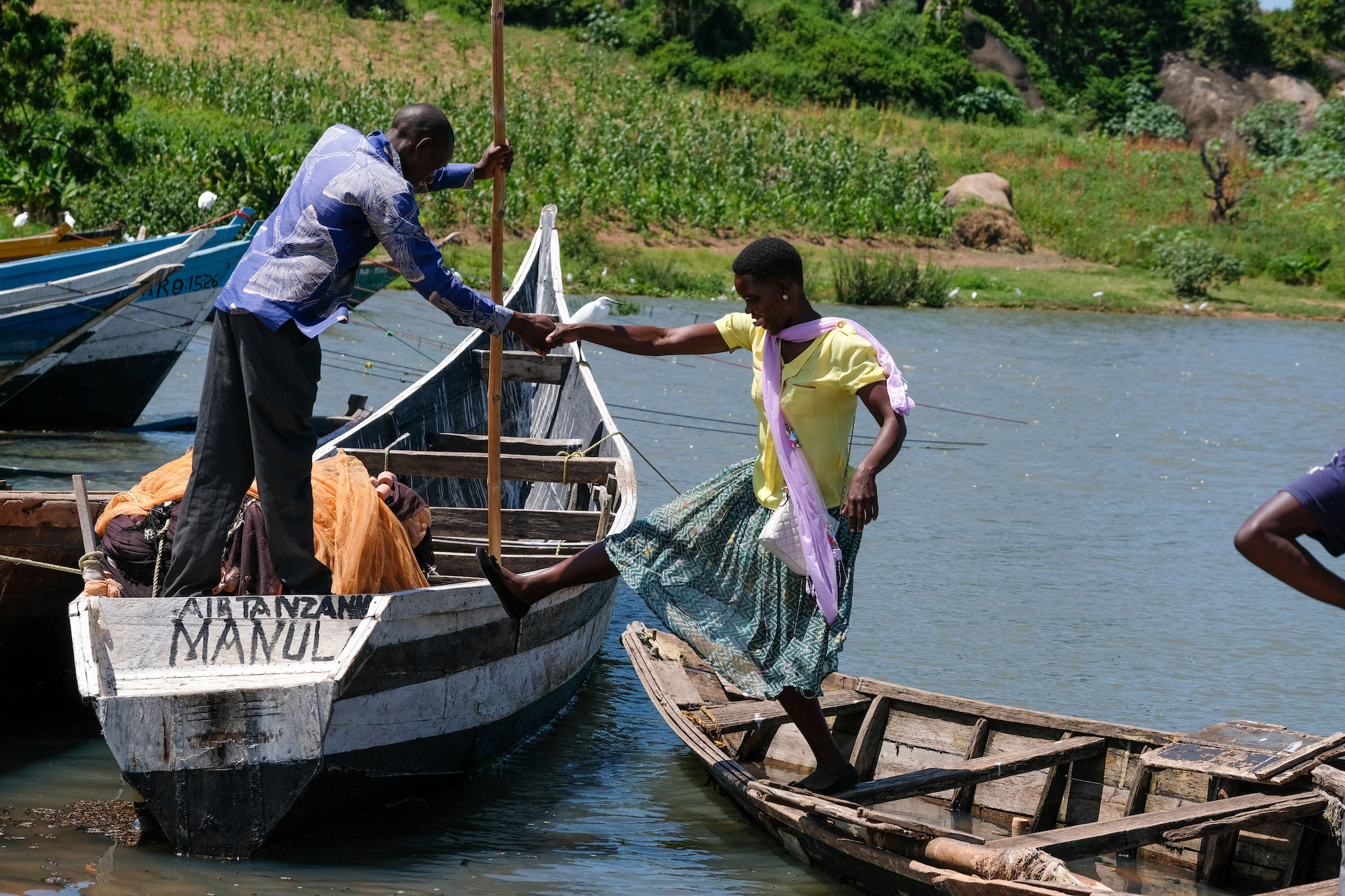
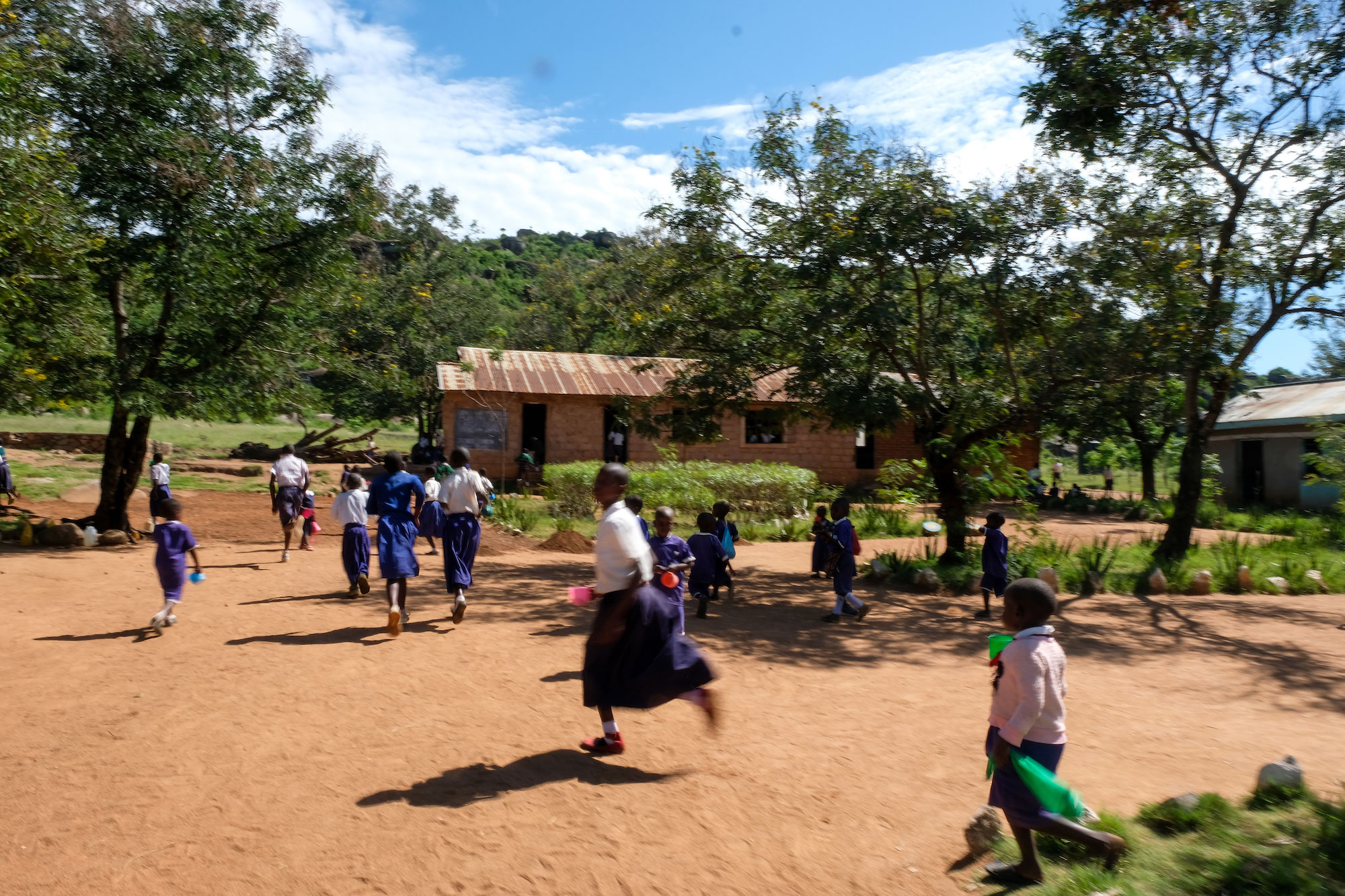

Timoth Akama | UC Global Scholar
Both countries were at some point in their history ruled by the United Kingdom during the age of European colonialism. That influence is seen on the highways and rural dirt roads where left-hand driving is the rule. Other road etiquette is strictly Tanzanian and Kenyan: drivers in both nations share a survivalist’s mentality with the bigger vehicle taking preference.
Roads are bumpy, pavement is thin or nonexistent, and things happen quickly. Trucks, vans, motorbikes and pedestrians are rarely more than six inches apart. Accidents are much rarer than expected even when stop signs and traffic lights are nowhere to be found. Calm is more the rule and tempers show sparingly. Motorbikes can carry anything: sofas, coffins, even passengers of four.
“Everybody just respects each other here,” remarked Elliott, commenting on traffic flow. “It’s not the same as in Cincinnati.”
Popular dishes in Tanzania include Ugali, a porridge of maize (corn), sugar and water, along with dagaa, a small silver fish found in Lake Victoria. A Stoney Tangawizi is a tasty, intense Tanzanian ginger beer soft drink that’s also popular.
Akama, like many of the people in this northern region of Tanzania, is of Luo ancestry. His mother is from Kenya while his father is a Tanzanian. They live in Shirati. Akama has a younger sister, Daissa, an undergraduate in Tanzania studying finance and banking, and a younger brother, Bruce, who is a literature teacher at a secondary school.

A scene of community life in northern Tanzania. Photo/Sean Hughes/UC Marketing + Brand
“There is no wrong or right culture,” Akama told UC students, faculty and staff during a nightly debriefing session. “There is no good or bad culture. At the heart of our culture is to be respectful and that means respecting everyone’s position.”
Respect is at the cornerstone of Tanzanian culture, and children are taught to revere all elders, Akama says.
That didn’t go unnoticed by Lance Entsuah, a UC economics student and NEXT Innovation Scholar (NIS), during his interactions in the communities.
“I think about how nice and receptive the children are,” says Entsuah. “Even when we are driving into the villages, they seem to be very respectful. If the roles were reversed and there were a bunch of Tanzanian people driving around the United States and kids saw them, it would not be like that. It is definitely interesting to see how other people are welcoming us into their homes and villages.”
Akama says Tanzanian children are fascinated by visitors and by the difference seen in dress, mannerism and also nationality.
“For the children, everyone wants to say hi to you. Also, you are visitors and they don’t see you around, especially white people and the dominant complexion is black,” says Akama. “When they see white people, they wonder and are excited and want to see and learn more.”

UC administrators enjoying a view from Mount Oboke. Photo/Sean Hughes/UC Marketing + Brand
The Tanzanian mainland is predominantly Christian while Islam is the dominant faith in coastal areas and near the islands of Zanzibar.
“We have tribes and people who believe in elder and African spirits,” explains Akama. “In Roche we have a hill site that, according to the elders, holds significant spiritual importance due to its historical use in ancestral activities."
Tanzania is one of the countries that has a reputation of peace and unity. Though there are more than 121 tribes, conflict between groups is minimal. Independence from the British for Tanzania came without bloodshed, a rarity on the African continent.
“Some tribes have chiefs,” says Akama. “They are influential people in the community, but the government doesn’t recognize them in a leadership role. But they are still influential in the community.”
Akama is completing his bachelor’s degree in public health at UC and is still determining what his future may hold. He could split his time between North America and Africa if certain circumstances occur or he could simply come home.
“I don’t mind living here in Shirati,” says Akama. “I can spend the rest of my life here. I love it.”
Bearcats on safari
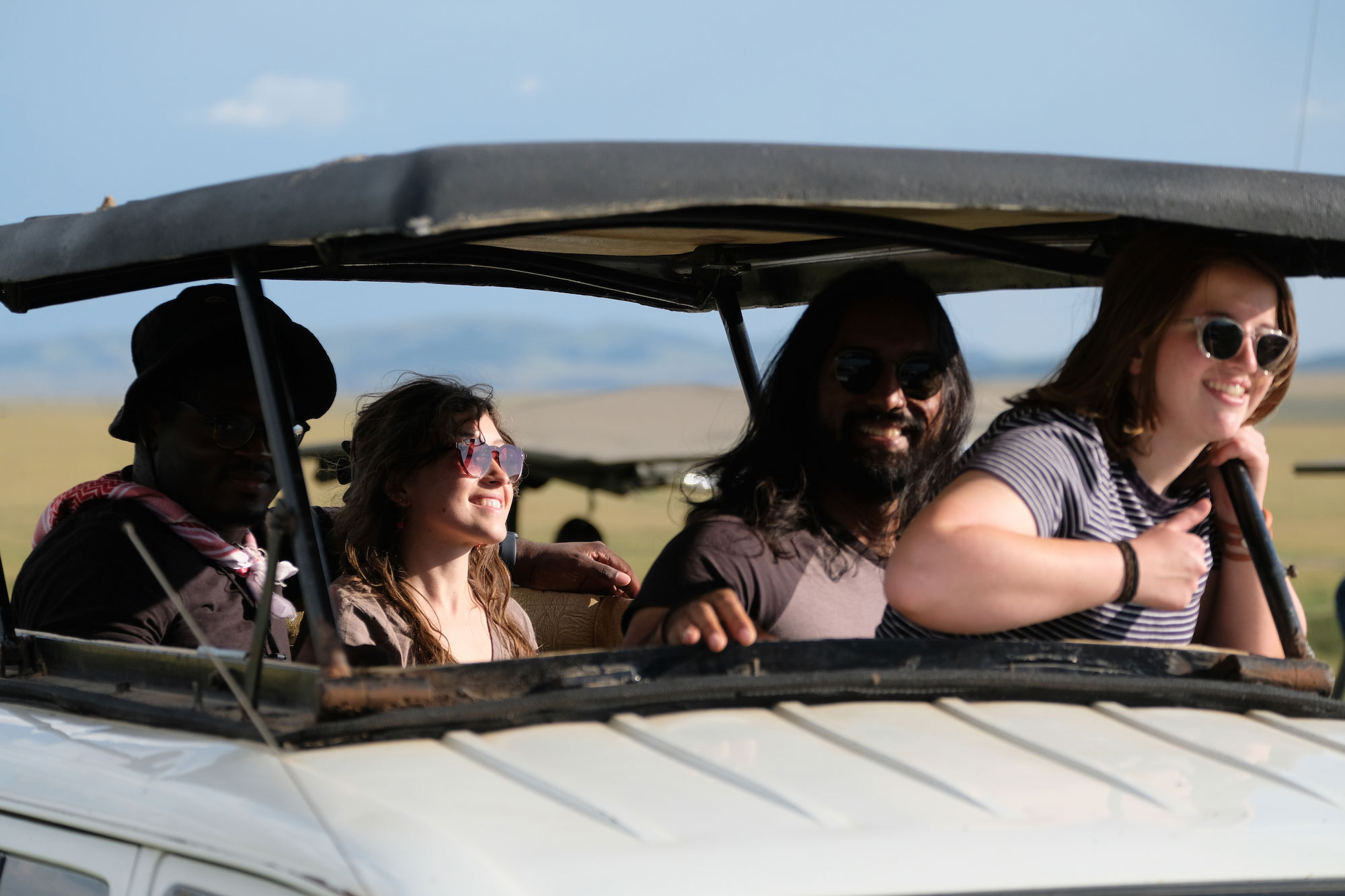

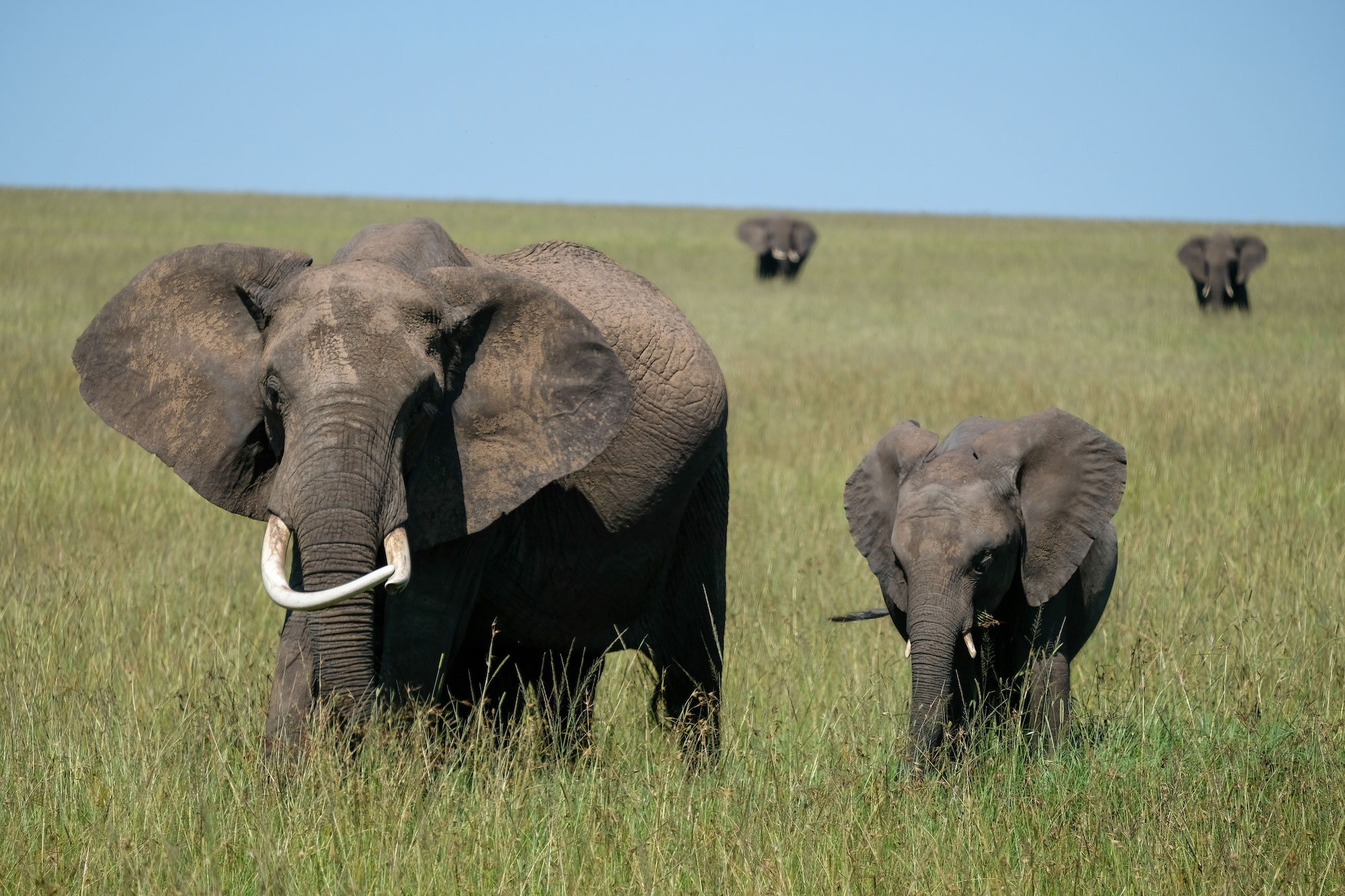
Students had the opportunity to take in a safari at the Maasai Mara National Reserve just north of the Tanzanian border in Kenya. Photos/Sean Hughes and Frank Bowen/UC Marketing + Brand
Clean water is essential
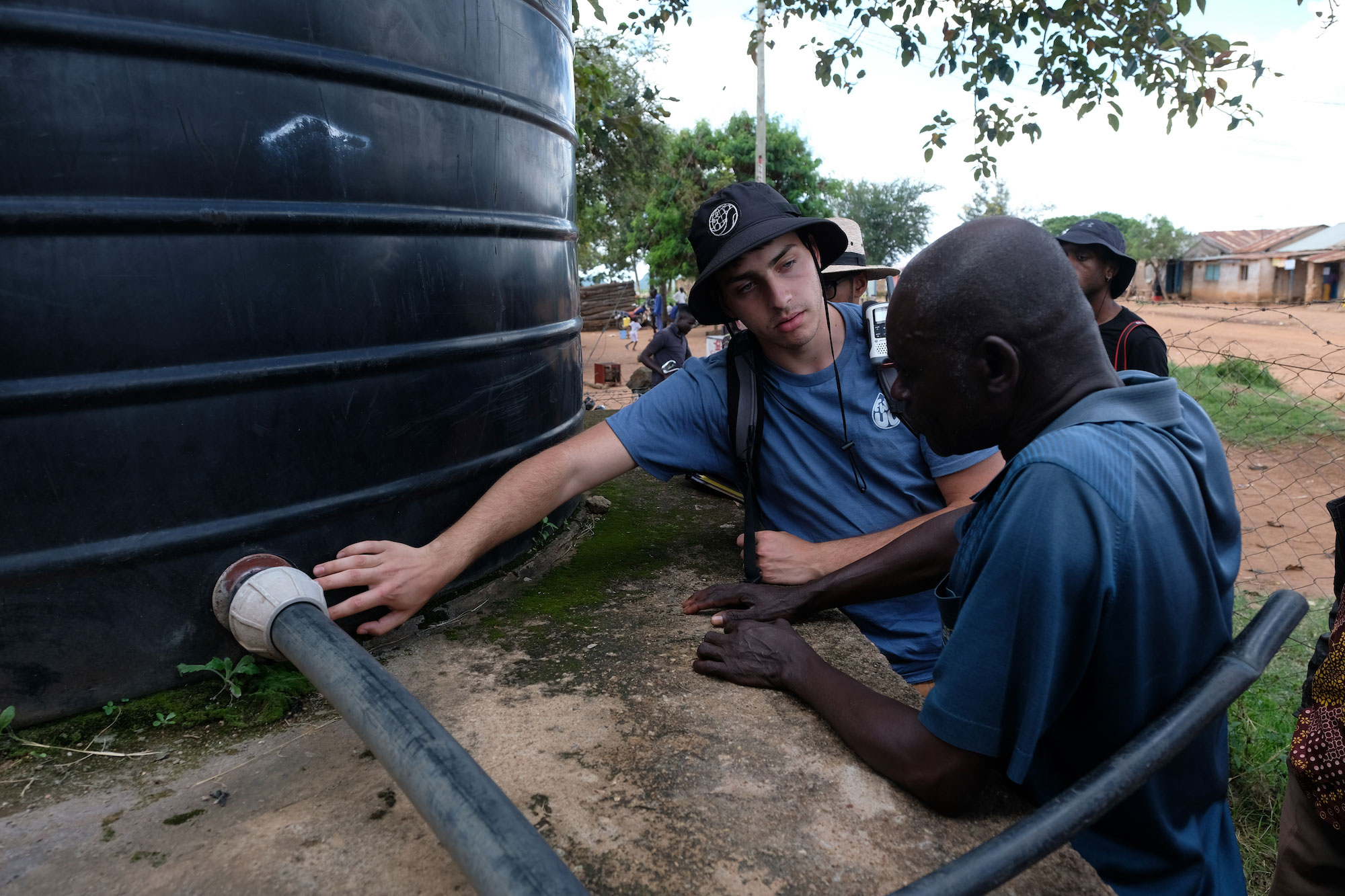

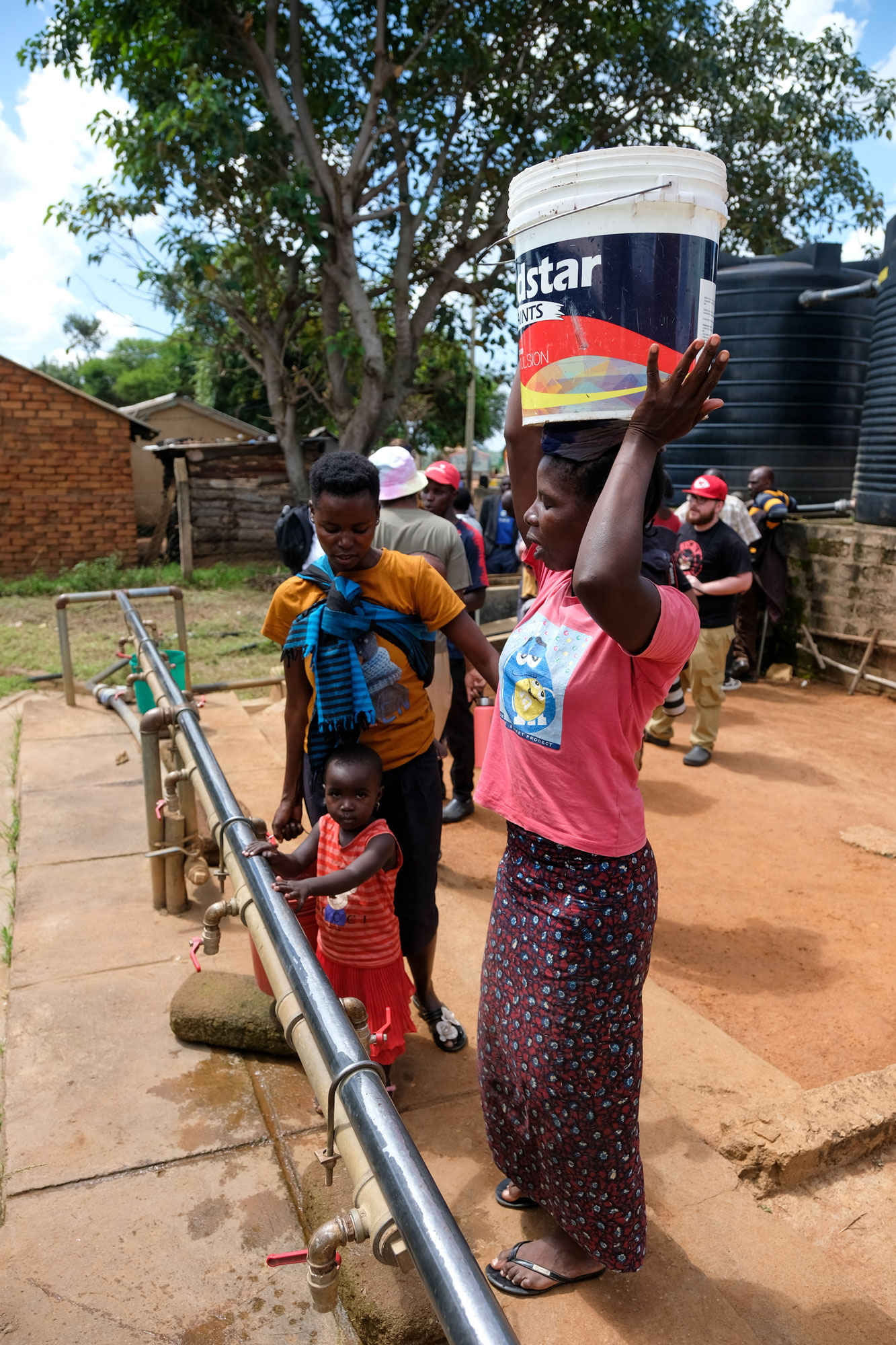
Recent UC graduate Nabil Djafi and first-year computer science student Soham Das pulled into Nyambogo with a clear agenda. Part of the UC chapter of Engineers Without Borders (EWB), they hopped out and began checking the water pumping station without delay.
Work needed to be done on at least one water tank, which had sprung a leak. Water flow to the primary school had slowed. There was also a need for additional plumbing so water from the system could be supplied to a new location. Schematic drawings had to be updated so changes made to the system would be reflected and known to plumbers.
They then had to rush off to Roche for a meeting with the community’s water committee. Other UC students, a team of the Marian Spencer Scholars, were also touring the community pumping station in Nyambogo. They learned that clean water impacts not only health, but the student learning in the communities.
Diarrhea, typhoid fever and cholera can hit younger students hardest. Often children are the ones who fetch the water, carrying it long distances even with the community taps. Transporting water can carry safety issues: attacks from wild animals, accidents with motorcycles and, particularly for young women, dangerous encounters with men.
“It’s challenging to be an engineer overseas, but it makes you a better engineer,” says Djafi, past president of EWB, who has been to Tanzania three times. “Go overseas and it introduces you to problems you never thought of in the past. This introduces you to new people and new ways of doing things.”
EWB’s UC chapter has been operating in Tanzania since 2009. Clean water for residents in Nyambogo, Roche and Burere has been their primary focus, though their initial project was to help construct a new Burere primary school in 2013.
The engineers have worked in partnership with Village Life, SHED and local residents to push major projects in all three villages, including a 100-meter borehole drilled in 2014 in Nyambogo and developing management systems that ensure water projects are self-sustaining. They’ve developed wells, water tanks, latrines and handwashing stations and water distribution systems.

Nabil Djafi | UC engineering alumnus
Water is certainly more accessible in each of the Tanzanian communities but what that means is residents use a few community faucets that many families share by filling buckets at the tap to take back home for cooking, bathing and washing. Only a few are lucky enough to have a tap at home.
This was Djafi’s third year visiting the three communities. He remembers working on the second phase of a water system for Burere after his first year at UC.
“When we first heard the water filling up the system it was the highest point of my life,” says Djafi. “I won’t forget hearing everyone cheering and clapping and giving everyone hugs and seeing water coming out of these taps.”
A water project in Roche hit a milestone during the engineering students’ recent visit to Tanzania. The group was able to turn over a water project to the community for long-term maintenance.
“Our main goal was to close out the Roche project,” explains Das. “So, we’ve been working on this project for about six years now. We handed it over to the community because we believe they can maintain the system better than we can, and we’re not going to be here forever. We just want to make the system very self-sustainable.”

Recent UC graduate Nabil Djafi is shown with UC student Soham Das in Nyambogo inspecting its water filtration system. Photo/Sean Hughes/UC Marketing + Brand
Takora Arnold, a second-year criminal justice major and a Marian Spencer Scholar, says clean water remains a topic that educators at schools in all the three communities continue to list as a concern.
“Our primary goal is to figure out what exactly their water situation is and try to see if there is anything that we can do to get the word out to help them,” says Arnold, who will help create a report about the water situation.
“We have been talking to teachers, staff members and students as well,” she continues. “We are asking them what their struggles are and what their hopes for the future are and what their home life is like. We plan to present it to students at UC to call attention to the problem. Although water access has improved over the years, it is still a struggle for them.”
“We spoke to some people, and they were telling us all they want is to just have clean water so their people can stop dying. That made me want to cry, honestly. I just wish there was more we could do now for them.”
Village Life founder Chris Lewis remembers clean water was the top concern when he spoke with village leaders back in 2004.
“They said, ‘Hey, Doc, this is great,’” recalls Lewis. “‘You've brought these medicines. You've brought these health care students and professionals, but can you help us with access to clean water? Because half of what you all are going to be treating in these field clinics is coming from our people not having access to clean water.’ And now I look around and it's humbling to see that thousands and thousands of people now have access to clean water that didn't have that access 19 years ago.”
Education is the future
It’s midmorning break time and the kids at Nyambogo’s primary school chat excitedly as they form lines for the Uji or porridge that’s being prepared and distributed in cups.
“They drink the porridge and then they go back to class,” explains Whitney Ismail, an interpreter who accompanied UC students, staff and faculty on the visit. The 2,500 primary school students in Nyambogo, Burere and Roche get Uji three times a week.
Mathew Matyo, chairman of the school at Nyambogo, keeps a watchful eye on the primary students and speaks through interpreter Ismail about his hope for the future.
Matyo says he is thankful for Village Life, which started the Uji project back in 2008 in partnership with SHED. A UC graduate nutrition student at the time, Caitlin Zivkovich, based her master's thesis on the idea of how to feed kids in the Tanzanian communities to make them more attentive at school and decrease malnutrition rates and absenteeism.
“There have been changes, very big changes here in this school,” says Matyo. “Before Village Life came, these children you see here stayed hungry morning until evening time because there was nothing to give them. Now, at least they are doing better.
“So when the Village Life people came the pupils have been prospering and most of them are going to secondary education. That is amazing. Back then, few would have gone on to secondary education. Many of them were just failing and there was no going ahead.”
Village Life, SHED and NIS have been looking at ways to bolster the nutritional impact of the meal. Educators would like the offering to be extended to five days a week. Mayto adds that Ugali, a porridge of white maize meal with fish, would enrich students, too.
A cup of Uji is often the only meal of the day for many primary school students in the communities, says Jonathan Raj, a UC fifth-year biomedical engineering student and NIS.
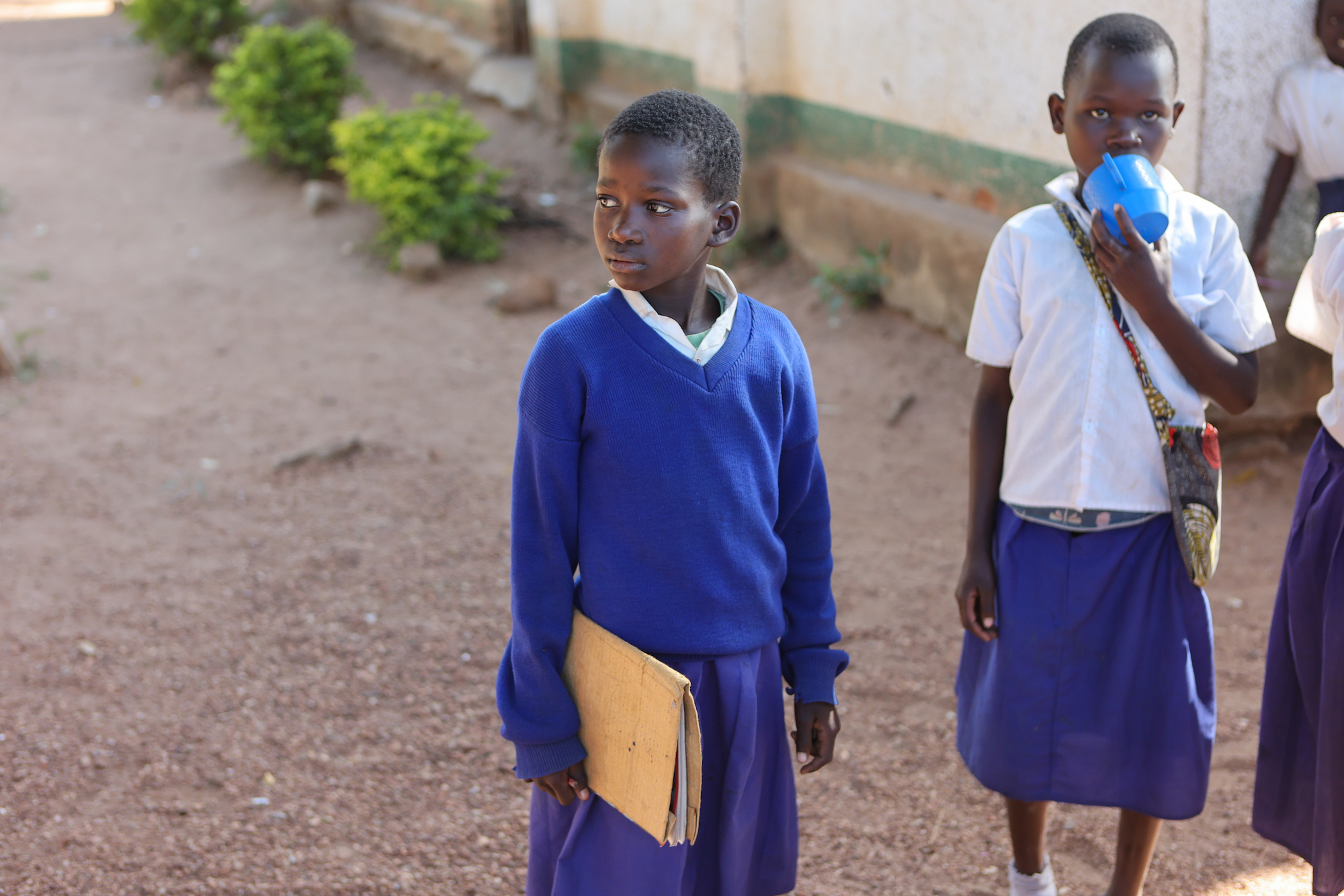
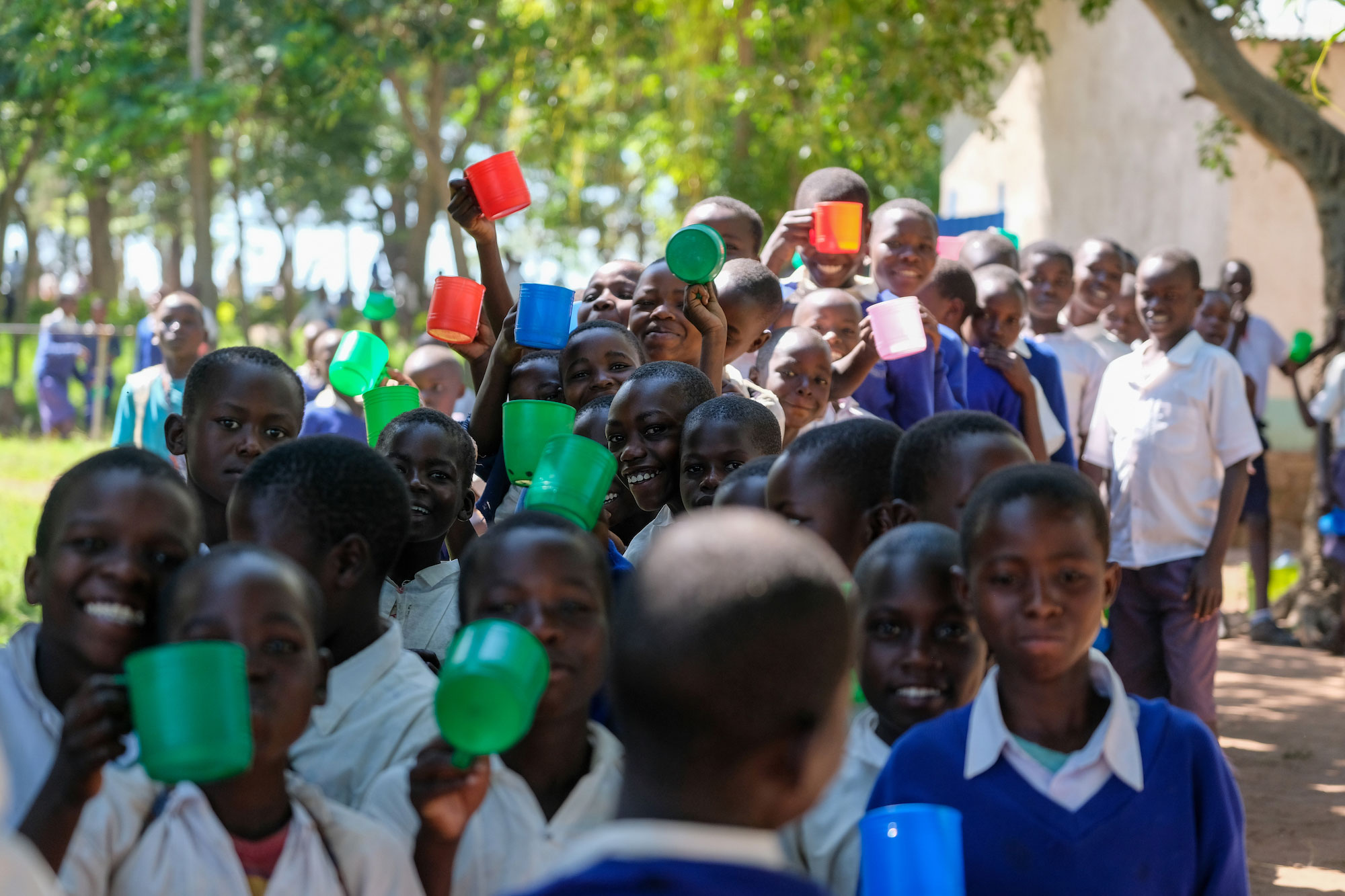
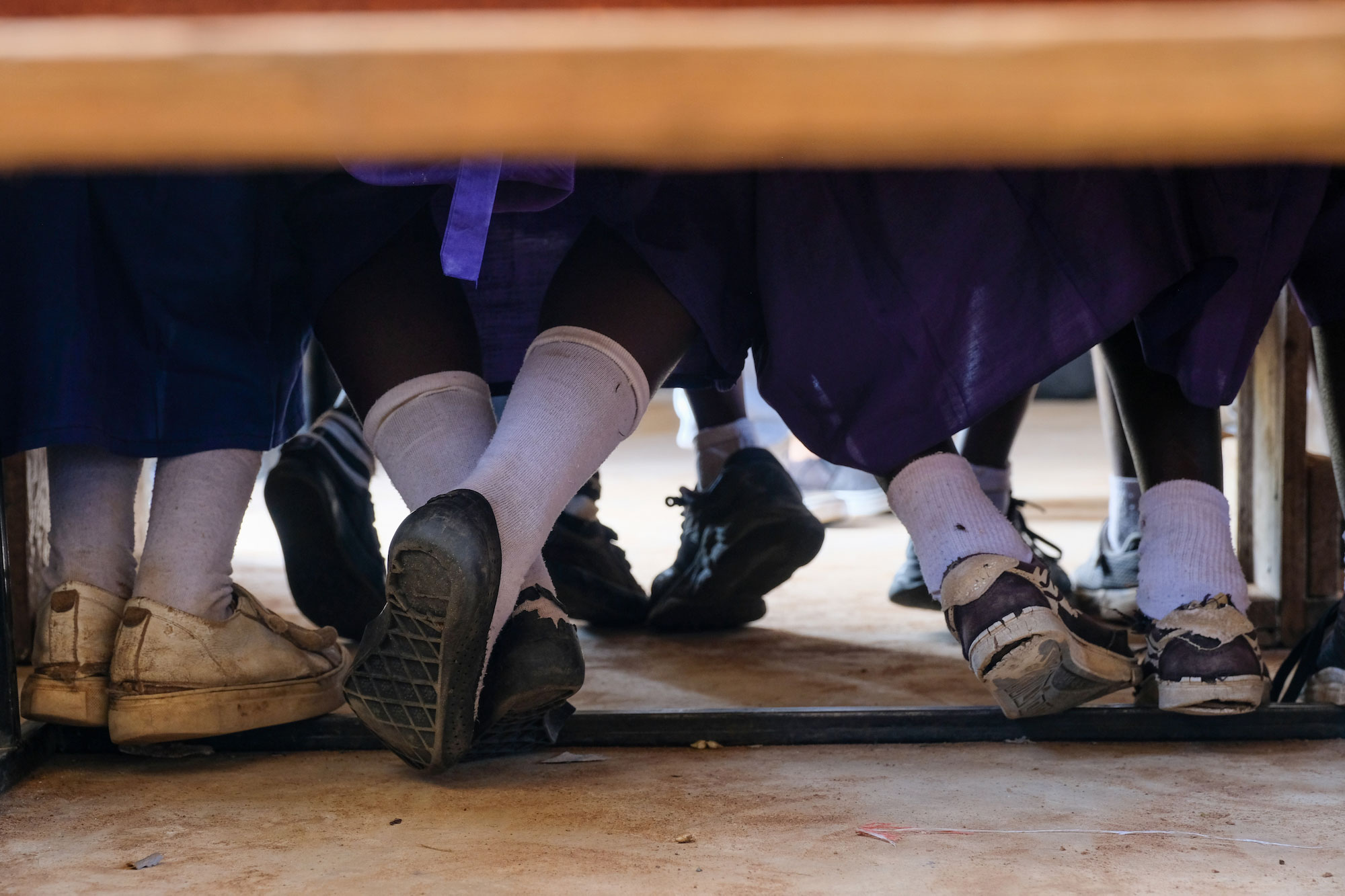
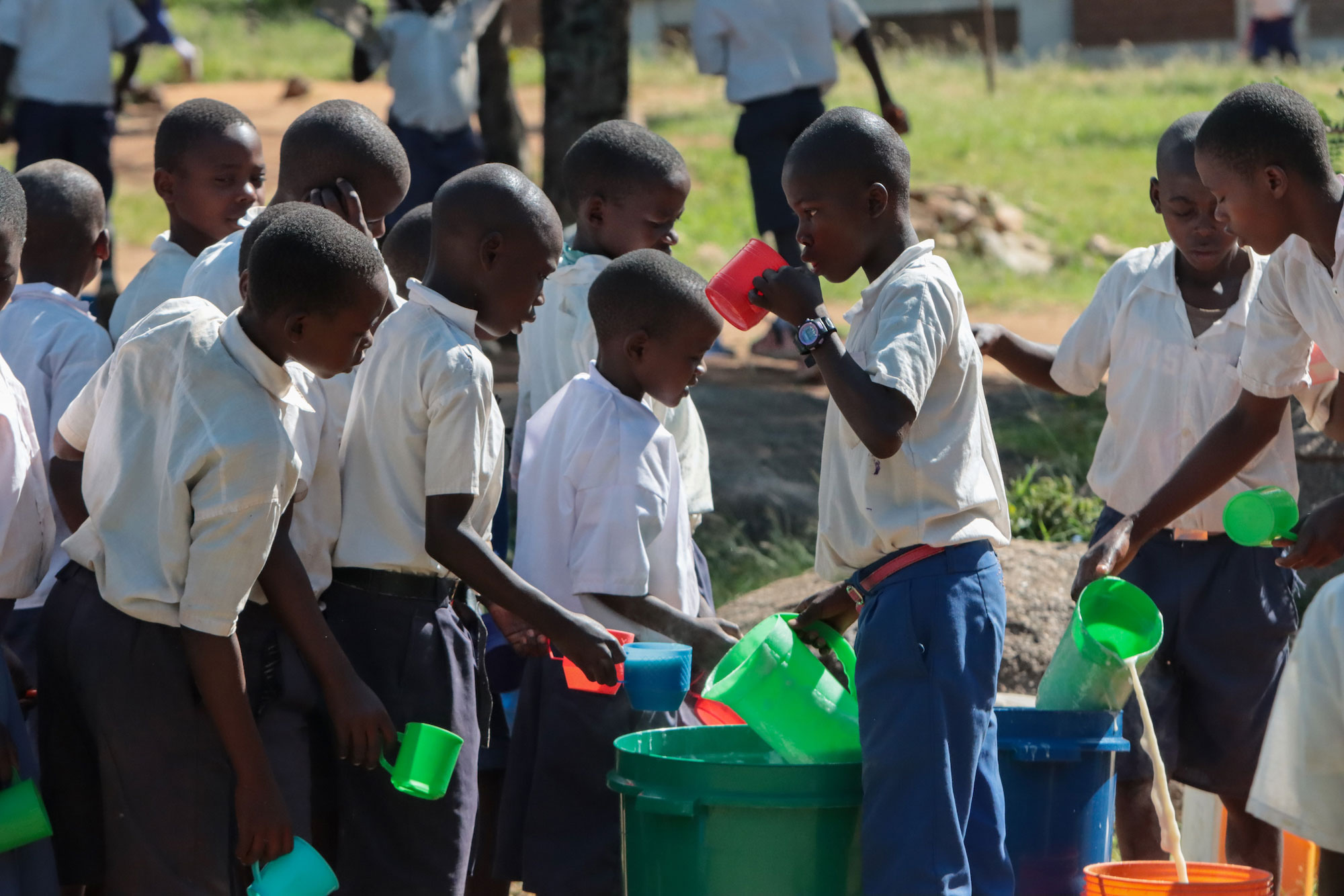

Mbathio Lo | UC Marian Spencer Scholar
“By providing Uji, the students are able to concentrate better and they do better on standardized tests,” says Raj. “One school that received the Uji from SHED went from being the bottom-ranked school in the entire Royra District to being ninth in over 100 schools. This is a simple intervention that can make a relatively big difference in students' lives.”
NIS has been floating ways to make the program more sustainable for the future. That team consists of Raj, fifth-year economics student Lance Entsuah, fourth-year industrial design and fine arts student Cecelia Favorito and recent UC graduate in industrial design Haley Rich.
“Options have been to try to have the students farm some of the grain themselves, supplement the food with livestock and get additional funding from the community,” explains Raj.
He says that in Nyambogo the school staff raise maize, while students monitor it. The maize is harvested twice a year and it provides a couple of weeks of food for the Uji project. NIS is investigating whether that effort could be replicated in Burere and Roche.

UC students Jonathan Raj and Cecelia Favorito speak with Tanzanian schoolchildren. Photo/Melanie Schefft
Many residents in each of the communities also raise chickens, but few people consume eggs because they want to raise more chicks, explains Raj. Maybe helping people better identify unfertilized eggs, which could become a source of protein, is another option to help bolster the nutritional needs of schoolchildren. NIS students also spoke to a chicken farmer in Nyambogo about the struggles she has in increasing her flock to inform their research.
“One of the challenges she faced was containing the chickens and use of chicken wire, which is very expensive,” says Raj. “Wire is a raw material so that’s why we have all these free-roaming chickens. We tried to come up with a way to contain the chickens more economically or a way to help more people raise additional chickens to supplement their diet.”
Mbathio Lo, a second-year computer science major at UC, says educators told her the Uji has brought many more students to the schools in Burere, sometimes filling classrooms to the brim. She also visited primary and secondary schools in Nyambogo with fellow Marian Spencer Scholars Jalen Tucker, a second-year cybersecurity major, and Maxwell Lawson, a second-year accounting and finance major. The group looked at community life as part of its project on this trip.

UC students Benya Coleman, Mbathio Lo and Nia McGlothin are part of the Marian Spencer Scholarship program. Photo/Sean Hughes/UC Marketing + Brand
“The people are so interested in education, but they don’t have all the things they need to make it happen,” says Lo. “When we visited the secondary school one of the teachers was telling me how really interested the students were in learning about information technology, but they don’t have a single computer in the school. Just think about it and how different it is in the United States. Here you have so many computers and there the whole school didn’t have even one.”
“Our trip was a life-changing experience,” says Lo. “There’s just so many things to learn.”
NIS is also working on an additional project that would allow the students to partner with the Nyambogo Secondary School to develop a curriculum that can help Tanzanian school children realize all their career options. That curriculum would not be internet-based but rather shared with educators so they can offer it to their students. Raj says many of the students see only a few pathways forward, such as becoming a physician or teacher, and that it could be highly impactful for students to understand the diversity of skills that can have an impact on one’s community and lead to success, beyond the ones that are traditionally seen and respected.
“We have experience in instructional design and curriculum planning so we are hopeful,” says Raj.
Healthcare is vital
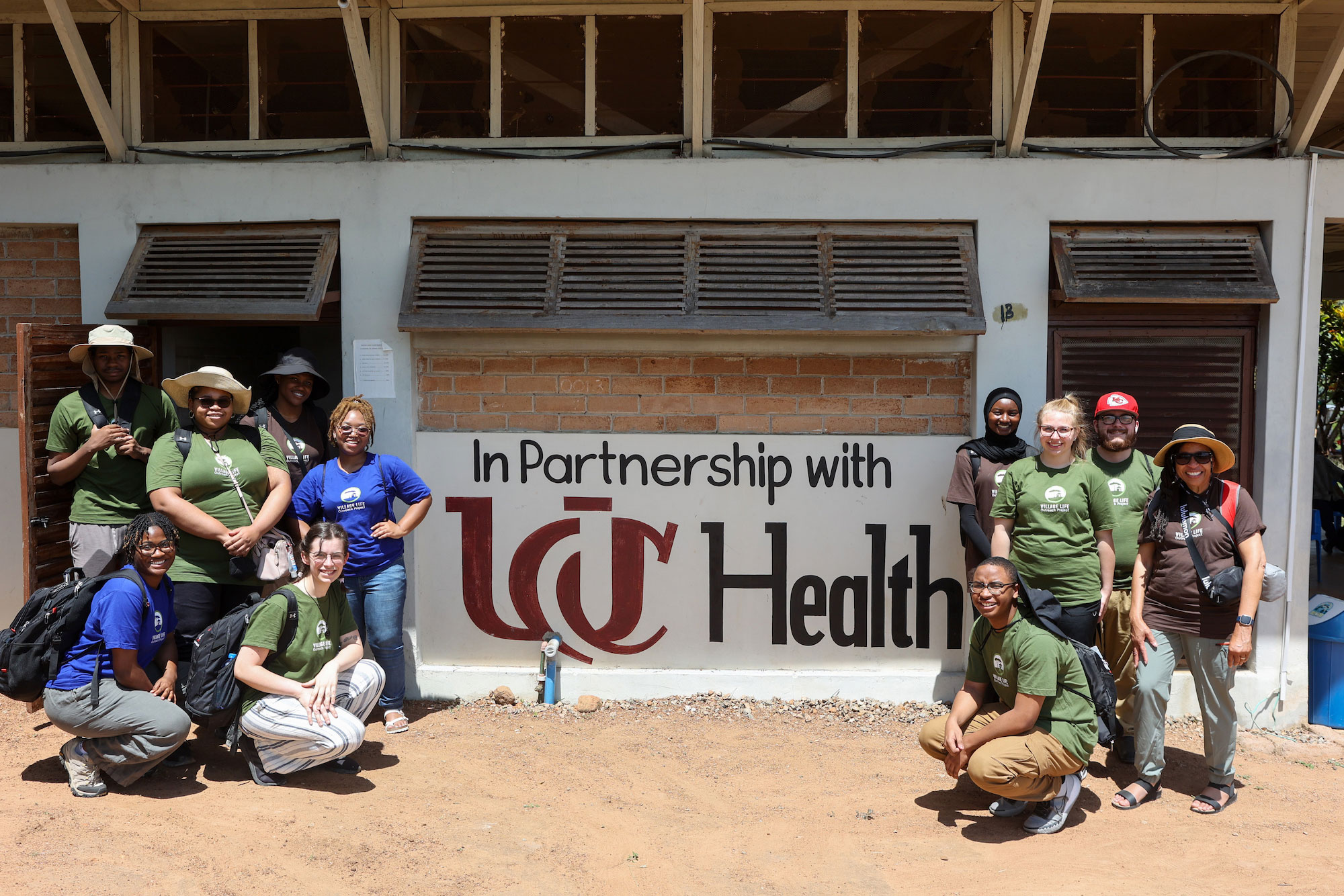
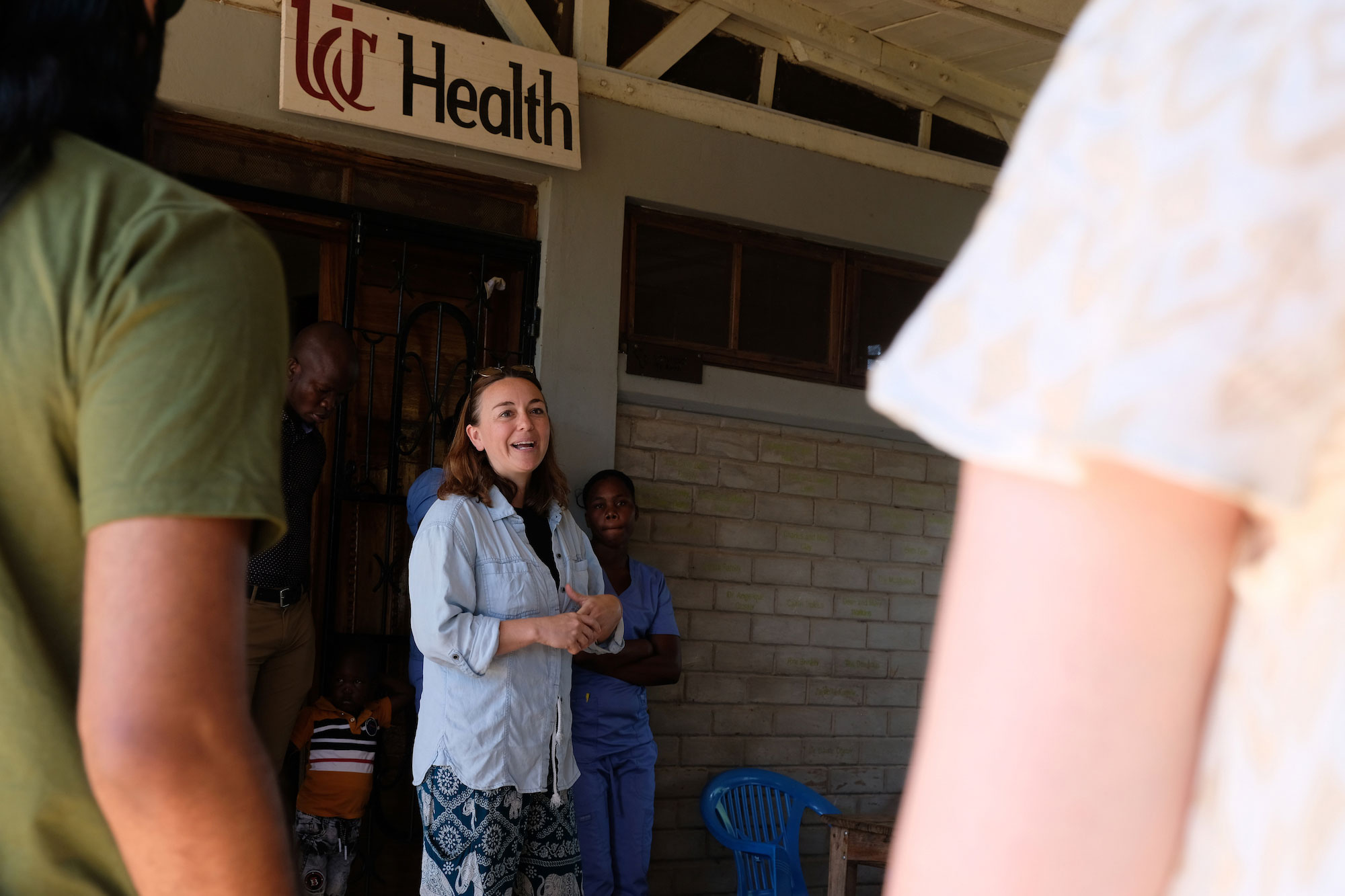
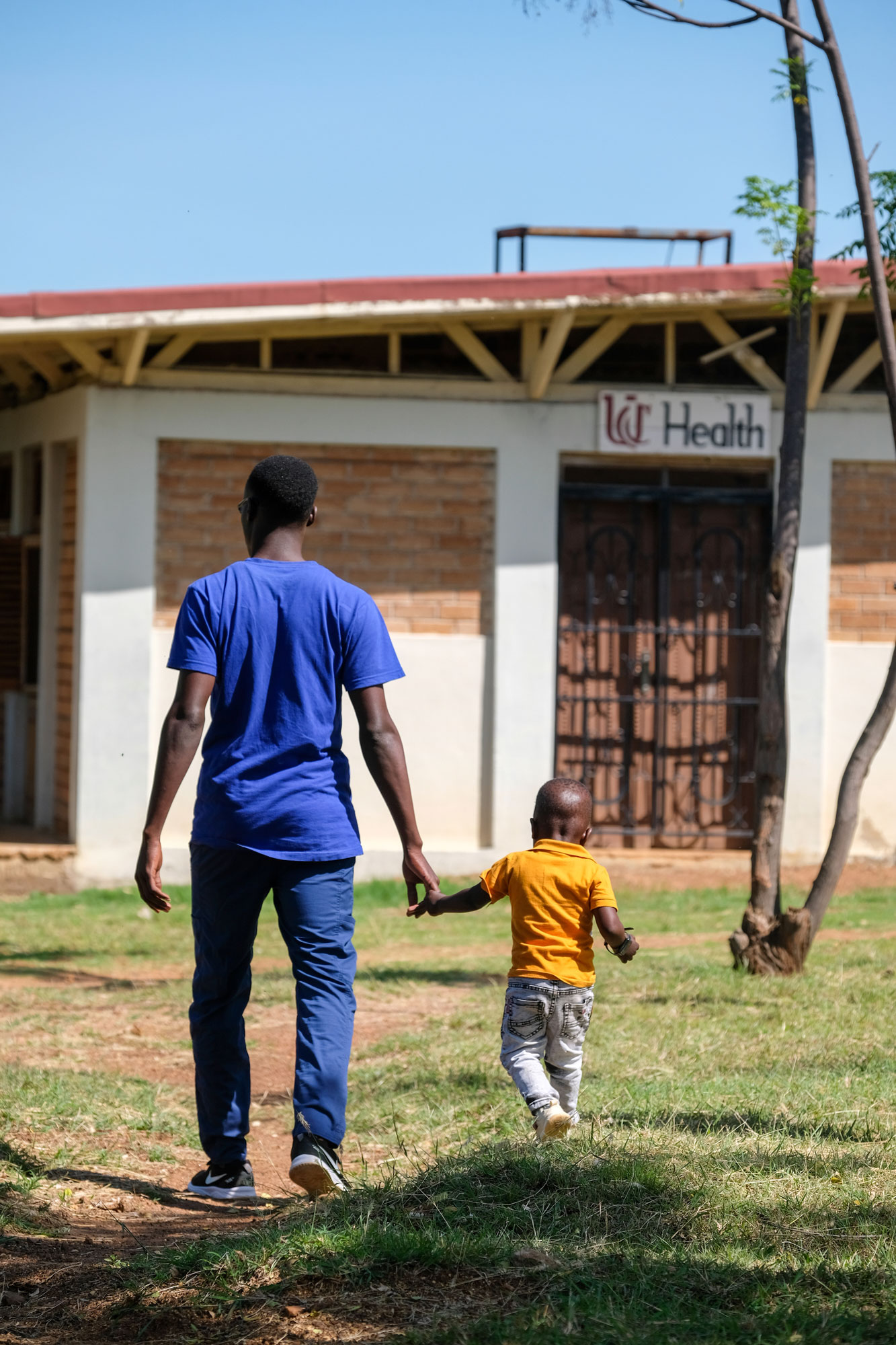
The Roche Health Center opened in 2011 and is a wellness oasis for residents in northern Tanzania. It provides care for an area with more than 20,000 residents and is a key achievement for Village Life. UC Health gave $1 million over a five-year period to support expansion of the Roche Health Center campus, hire additional staff and boost the Uji program. Funds also supported the work of SHED.
Emily Roush-Elliott was one of many UC students who participated in the design of the Roche Health Center as an architecture graduate student at UC led by then-faculty member Michael Zaretsky. Nearly 15 years later, she was back in Roche to check in on the construction of the new M. Anne Haire Reproductive and Child Health Center (RCHC) to share the story with a group of UC students, staff and faculty. Through a generous donation the new 3,600-square-foot RCHC will expand services to women and babies, focusing on prenatal care, birth, reproductive services and cervical cancer screenings.
RCHC offers a dedicated ultrasound room, four labor and delivery beds, six beds in the prenatal room and six beds for postnatal care if complications arise after birth. There is a mother-to-child room that allows for additional care and bonding between mothers and infants. It’s the closest thing the facility will have to a neonatal intensive care unit, says Roush-Elliott.
“It is a space designed for a person to be in relatively short term,” she says, referring to the new maternity ward. “You aren’t going to come a week before you go into labor but certainly a day or two days because so many people are going to walk to this facility.”
The existing Roche Health Center building offers a pharmacy, women’s care and men’s care and a bit of maternity all under one roof. Treatment is provided on a sliding scale based on income for residents. Supporters of the center are still hoping to someday offer an operating theater and provide Caesarean sections.
Roush-Elliott says the building was initially designed and constructed to be very passive — meaning it is comfortable for occupants during the summer and winter without the use of electricity.
“As you look around now you will see some electricity and that is relatively recent, especially now that we have some power lines that come out to Roche and that is recent also,” she says.

Jonah Otota Ouma | Roche community member
The construction of the building involved the use of local materials and the local populace, providing employment to many community residents. Women played a very important role in the construction.
Community members did the hard work of acquiring and moving large amounts of gravel and fine aggregate sand. They smashed rock down to gravel size. Community member Jonah Otota Ouma was among those who invested sweat equity in the building. He remembers not only the building’s start but the origins of Village Life.
The 45-year-old Roche father of four grew up in the community he holds so near and dear and is a longtime security officer at the Roche Health Center. Ouma spoke through Timoth Akama, who served as an interpreter.
“Nineteen years ago, we had to walk eight hours up to Shirati or Kenya across the border just to seek medical help and for women to seek reproductive and child health services,” Ouma says. “The hospital is the big change. The community is so happy about the partnership. Village Life and Dr. Chris Lewis brought what [the community] wanted for so long.”
“Apart from just this health clinic being here, this has also given us a source of employment and I really appreciate that,” says Ouma, who continues to also farm to support his family.
What matters to the communities?
Cindy Jones, director of the university’s Marian Spencer Scholarship program, posed a question for members of the Roche community: “What’s the hope that you have for the future?”
The response from two women in the community — Monica Ugunde and Flora Maua — was instant. Speaking through Benson Maltube, who served as an interpreter, Ugunde asked if there is a way to have preschool education, noting that a good foundation in education would be a wise investment in Roche’s future.
Maua explained how the lack of education creates barriers, starting with mothers who deliver at home and continuing with low attendance of students in schools.
“From that very beginning until this time the problem of education remains,” says Maua, thoughtful and deliberate. “Our kids are not prepared. They fail to discover the value of education and others lose hope and choose to stay back home.”
Maua was grateful to see educational opportunities for young women in the local schools, but she also stressed the importance of preschool for children to do well in primary and secondary schools.
“We are going through a lot of challenges in our schools,” says Maua. “The distance from home to school can make a student lose hope, and the time without food can also make them lose hope.”
She was concerned that still not enough students are going on to secondary schools. The distance walking from home to school for some students in any of the three communities can range anywhere from three to seven kilometers.
In Nyambogo, teachers at the primary and secondary schools spoke about what they needed as well, explains Natalie Bennings, a second-year UC psychology student.
“When they were addressing us they were kind of treating us like we had more power than we actually do and that was kind of frustrating,” says Bennings. “I wish I had more power so I could change things and help them.”
Primary school teachers described a half-built structure designed to help menstruating girls. “I thought that it was really cool that they would have that but it wasn’t finished so that was frustrating in itself,” says Bennings.
Teachers at the Nyambogo secondary school discussed the challenge of no meals for older students, problems with the water system at the school and the fact that the neighboring elementary school doesn’t have a single computer or printer.
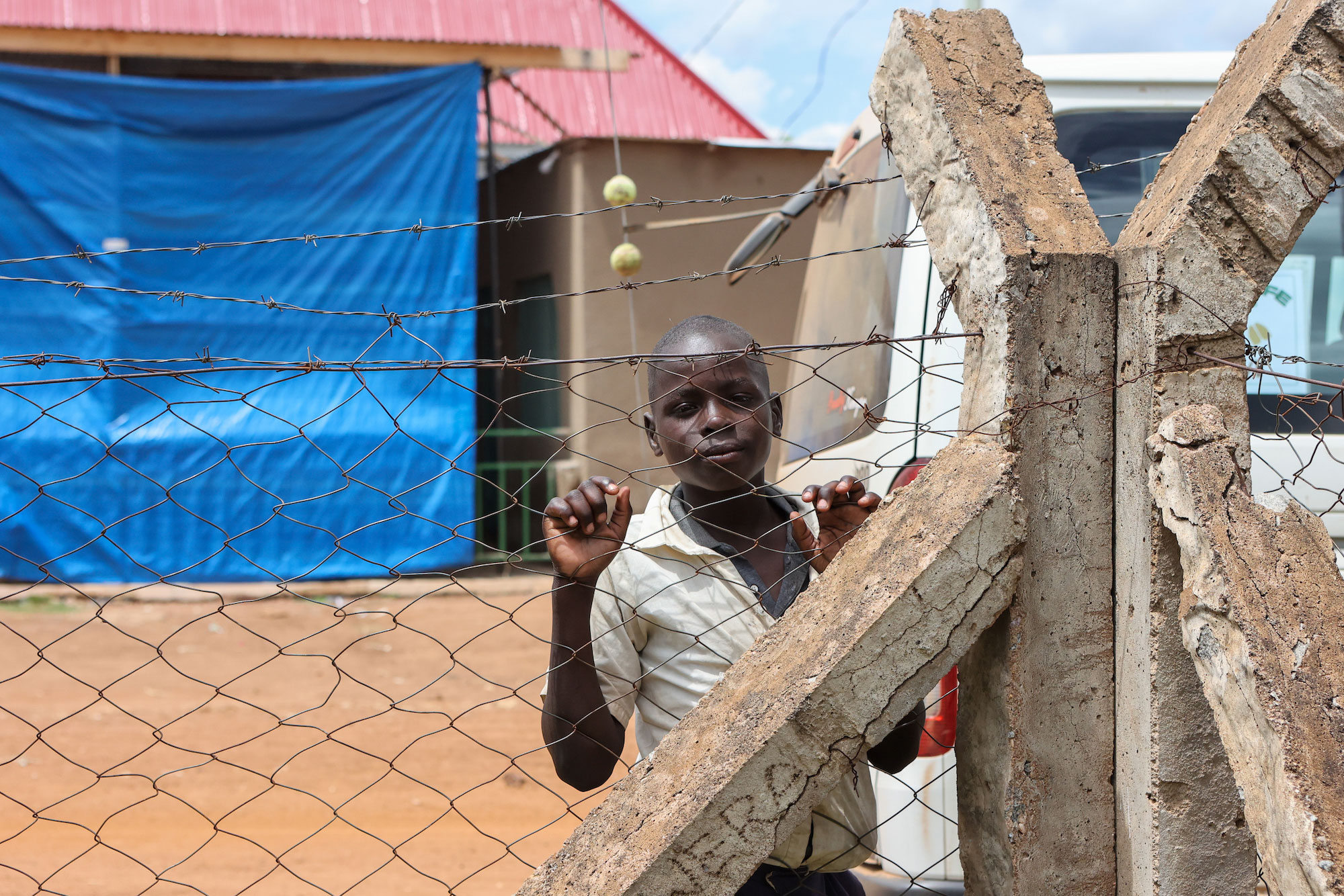
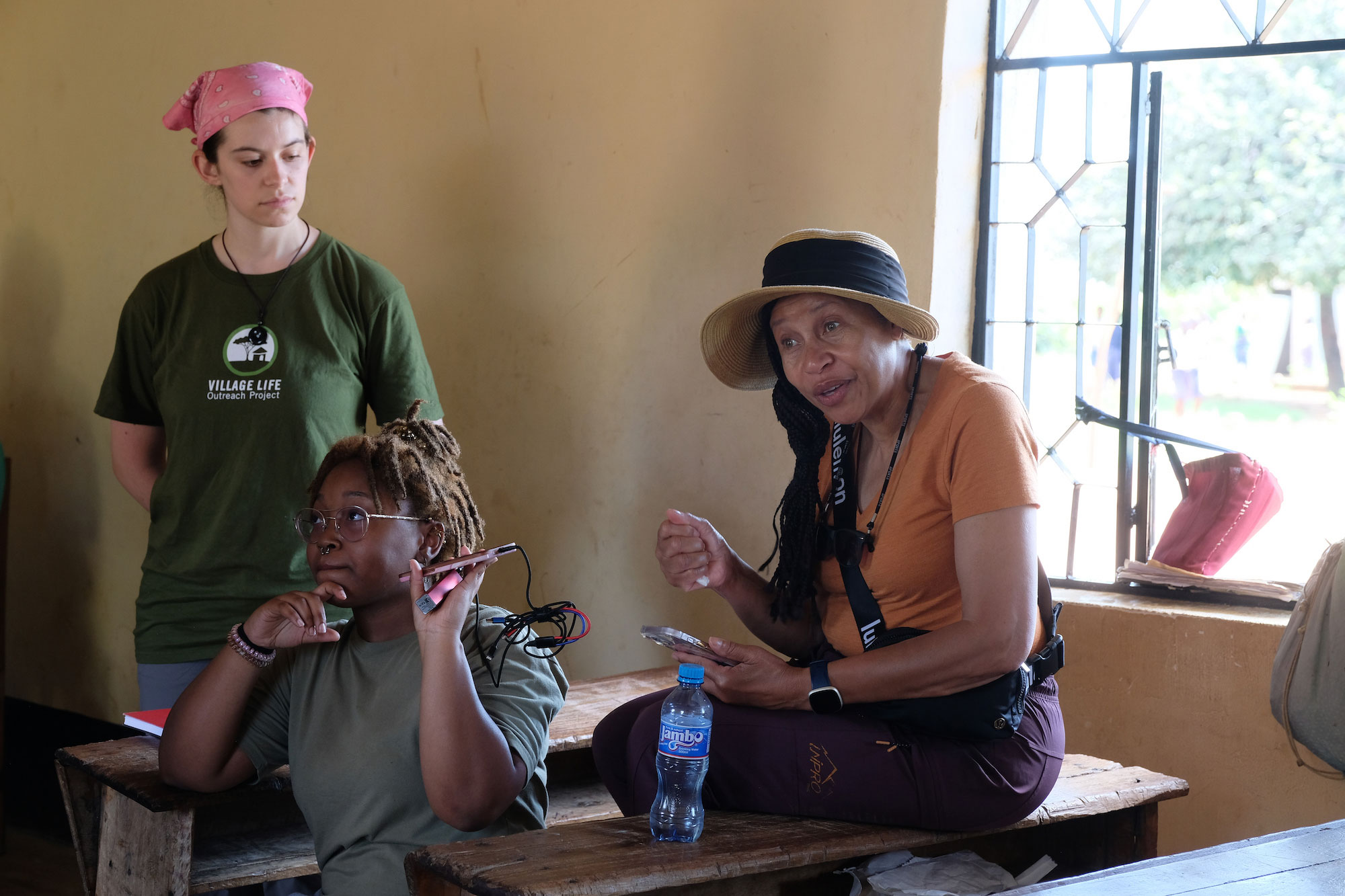
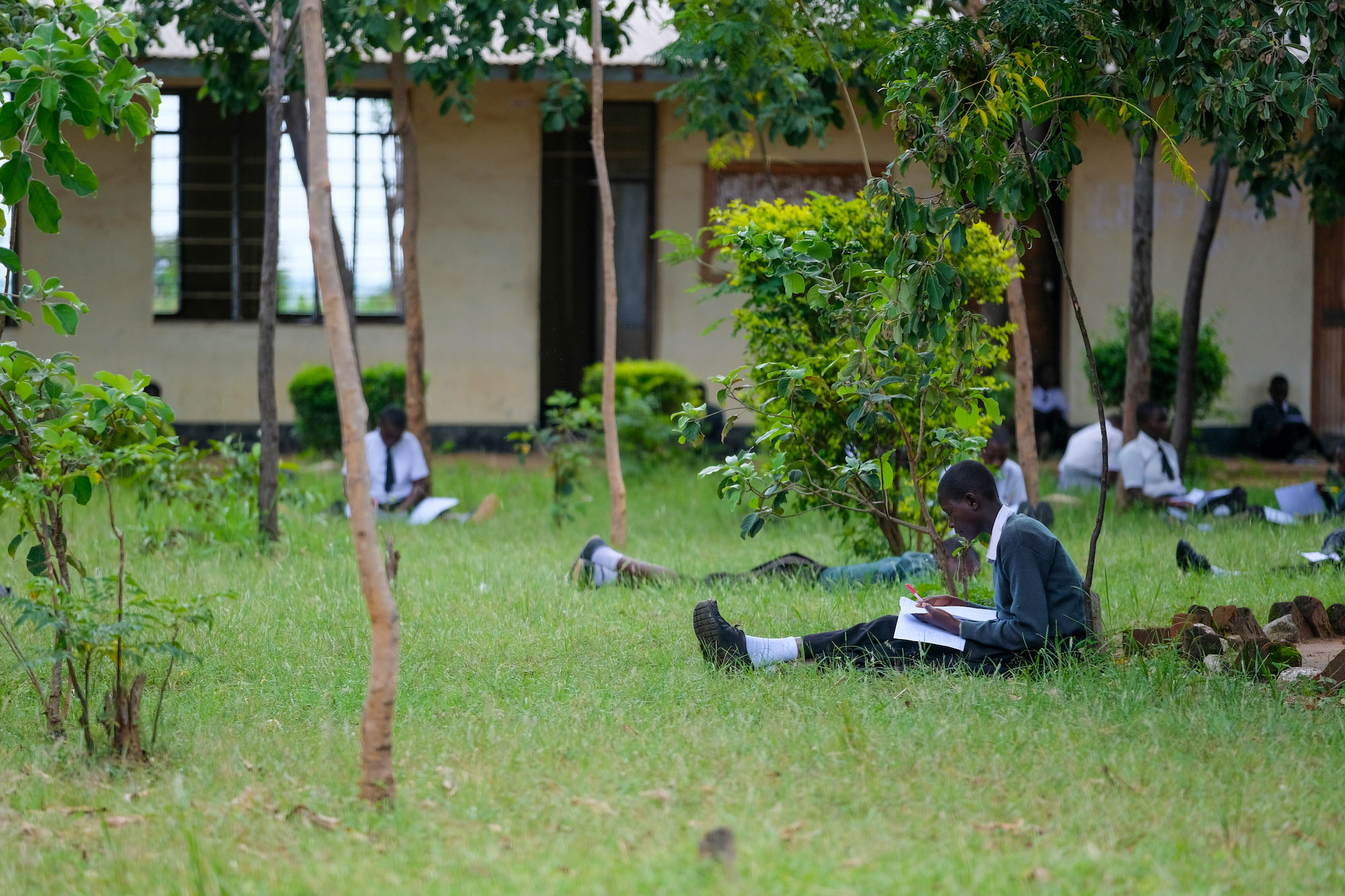
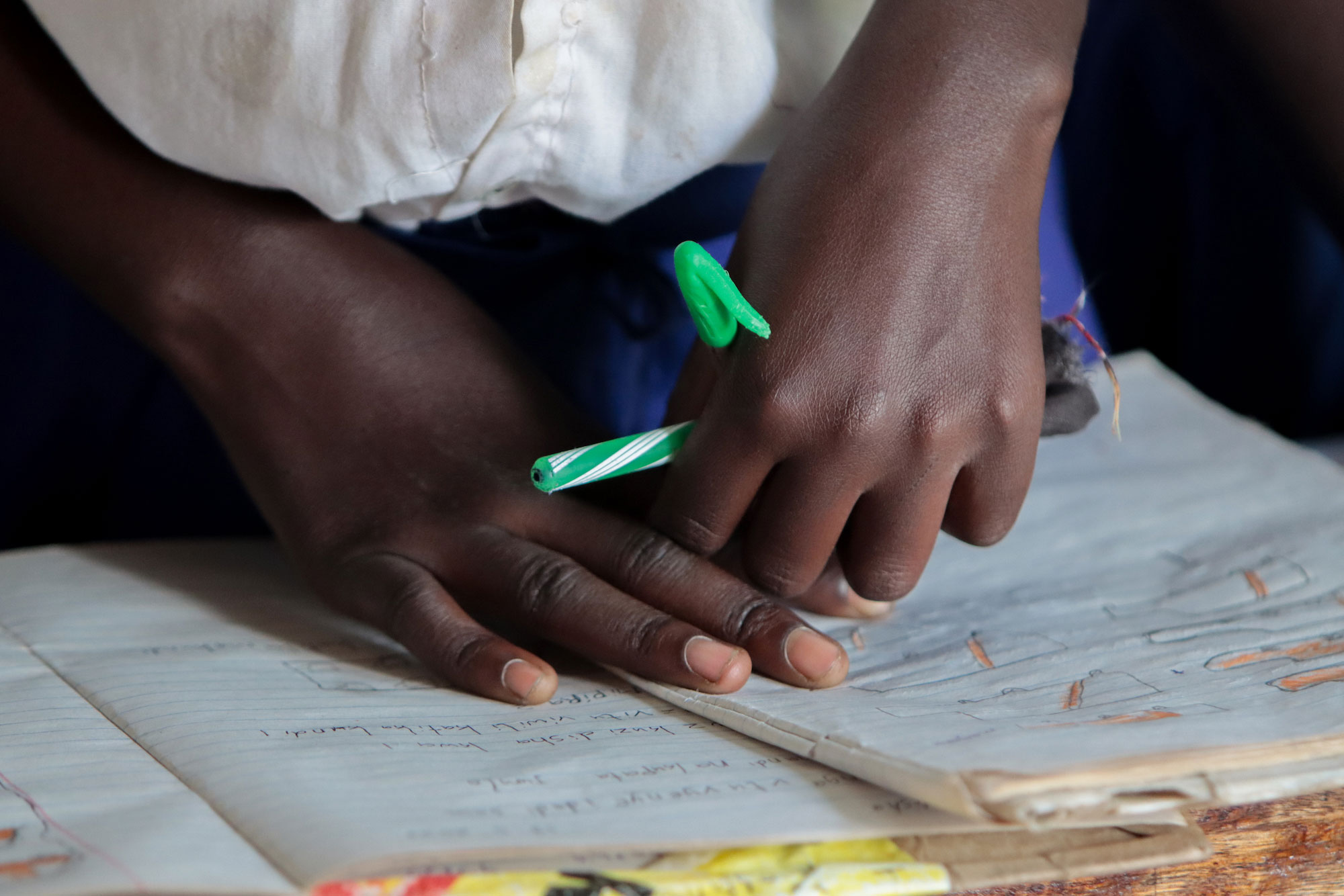

Natalie Bennings | UC Marian Spencer Scholar
Bennings and the other Marian Spencer Scholars collected notes on the teachers’ needs. Back at UC, they will present their findings and work to create solutions.
“We have many challenges,” says Bosco Kimambo, a science teacher at Nyambogo secondary school. “I teach physics, science and I don’t have a single beaker for my students.”
Kimambo grabs a nearby empty whiskey bottle sitting on the windowsill; it serves as a substitute beaker for lessons. He thought for years there would be more government funding, but providing the basics for students can be a challenge without that funding.
In the remotest of the communities, Burere, parent Julius Ongindi Mkorya explained through interpreter Josephine Ambomya that students fail to go to school during the rainy season because dirt roads are at times impassable. He wondered if there could be any help in improving infrastructure in the community.
UC students spoke with village leaders in Burere to gather information about a range of topics impacting the community. Village chairman Sango Wambura Makoro says that when clean water isn’t available, Lake Victoria or nearby rivers or streams become an alternative.
“When the water is provided and is clean, our children will have good health and they will perform well,” he says. “As we continue to use the water from the lake the children will suffer from schistosomiasis,” referring to the disease caused by infection with freshwater parasitic worms in certain tropical and subtropical countries.
Water coming to Burere is available to fewer areas than the community expected, according to Makoro. Another area of concern for the village is that many residents suffer from malaria.
A lasting impact for students
Marcus Elliott can’t forget the scenes of schoolchildren enjoying a serving of porridge in the Tanzanian communities.
“They don’t get to eat every day, it’s only three times a week and you really can see the malnourishment,” says Elliott. “You’ll see a child and you think that they are 10 or 11 and they’ll be 17 years old. It’s because they’re so malnourished and they’re so small and you don’t realize that. The right nutrition helps you grow, but you don’t realize how important that really is.
“I didn’t expect that and it really has stuck with me,” says Elliott. “Nutrition matters a lot but you don’t understand it until you see it in play. In America most children get a measure of nutrition. Even the poorest people in America, we still get nutrition. Malnutrition is very, very serious when it comes to the schoolchildren over there.”
Elliott shared his experience with his mother and sister when he returned to Cincinnati. “My sister was getting really upset and I was just trying to tell her, I know it's very upsetting for us and obviously for them, but at the end of day that is how they were raised. It’s normal for them and it’s very sad for an American to see it.”
“I’ve learned a lot of knowledge that I will share with people,” says Elliott.

UC student Marcus Elliott greets Tanzanian schoolchildren. Photo/Frank Bowen/UC Marketing + Brand
Indeed, while many students were keen on making an impact on the communities in Tanzania, the people they met and lessons learned during this unique learning experience left a lasting impression on the students as well.
“I learned to have a different perspective on the world and be more appreciative of things that I have,” says Jalen Tucker.
“Find opportunities to give back to people less fortunate than you. Once you get a chance to see how other people live throughout the world you get a broader understanding of how the world works and you become more grateful and want to help others.”
For some, it has ignited a passion for service.
“I want to actually come back and do whatever I can to add to whatever they need,” says Takora Arnold.
Dr. Lewis speaks with pride as he reflects on the students' transformational journey.
“They've come here and many of them have never even been on a plane or never traveled overseas and they've shown up to work,” he says. “They've been out there in those villages conducting interviews and needs assessments with community members. There's been some tears shed, there's been a lot of sweating and rolling up of sleeves, but those students have shown up and delivered and I couldn't be more proud.”
Learn more about how Village Life Outreach Project is making a difference in Tanzania and be a part of its work.

Thirty-four UC faculty, staff, students, alumni and supporters visited Tanzania in May 2023. Photo/Sean Hughes/UC Marketing + Brand
Additional credits
Photos: Frank Bowen and Sean Hughes
Video: Andrew Higley
Digital design: Kerry Overstake
UC Marketing + Communications
Become a Bearcat
Whether you’re a first-generation student or from a family of Bearcats, UC is proud to support you at every step along your journey. We want to make sure you succeed — and feel right at home.
Tags
- Impact
- Experience-based Learning
- College of Medicine
- College of Arts and Sciences
- Student Experience
- Must Read
- Health
- Alumni Association
- International
- College of Design, Architecture, Art, and Planning
- Diversity
- #UCtheGood
- CPS Strong
- Admissions
- Next Lives Here
- College of Engineering and Applied Science
Related Stories
Can coal make a comeback?
February 24, 2026
Bloomberg Law speaks with Joseph Tomain, Dean Emeritus and Wilbert and Helen Ziegler Professor of Law at UC, about the federal government's push to promote use of coal plants for energy generation.
Why do female caribou have antlers?
February 24, 2026
Researchers at the University of Cincinnati discovered that female caribou feed extensively on shed antlers they find while grazing to supplement their diet with important minerals they need to raise calves. This could explain why female caribou, unique among deer, have antlers.
UC alum aims for summer Olympic debut
February 23, 2026
With the 2026 Winter Olympic Games coming to a close, attention now turns to the summer games coming up in Los Angeles in 2028. Beach sprint rowing is a relatively new sport that is surging in popularity due to its inclusion in the 2028 Los Angeles Olympic Games. Spectrum News 1 spoke with Lindner College of Business alum and most-decorated beach sprint rower of all time, Christopher Bak, on his Olympic-sized goals.
CCM singers advance to Metropolitan Opera Laffont Competition semifinals
February 23, 2026
Three UC College-Conservatory of Music alumni and one current student are semifinalists in the 2026 Metropolitan Opera Eric and Dominique Laffont Competition. One of the most prestigious singing competitions in the world, the Laffont Competition's national semifinals take place on Sunday, March 15, 2026.
Fentanyl overdoses hitting the elderly
February 23, 2026
The University of Cincinnati's Daniel Arendt was featured in a Jacksonville news station News4Jax report on the increase in fentanyl overdose deaths in seniors.
UC/UC Health Addiction Center to advance addiction research, treatment and education
February 23, 2026
The University of Cincinnati and UC Health have launched the UC/UC Health Addiction Center, a multidisciplinary initiative designed to unite research with clinical and educational expertise to improve addiction prevention and treatment outcomes in the Greater Cincinnati community and beyond.
